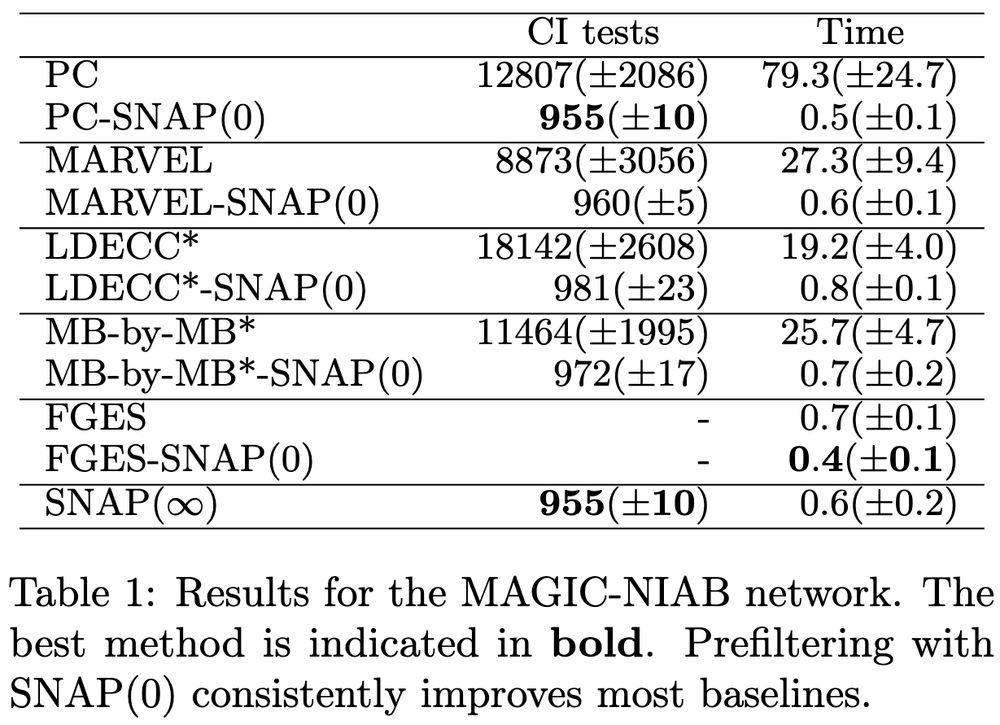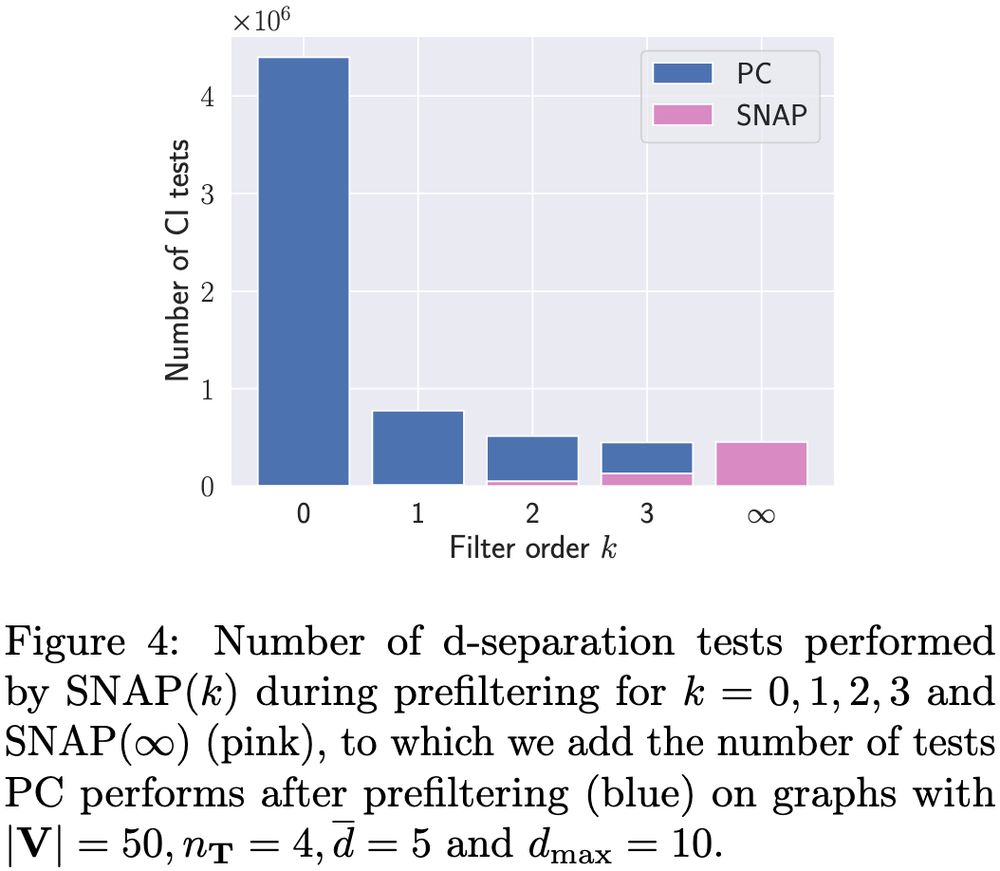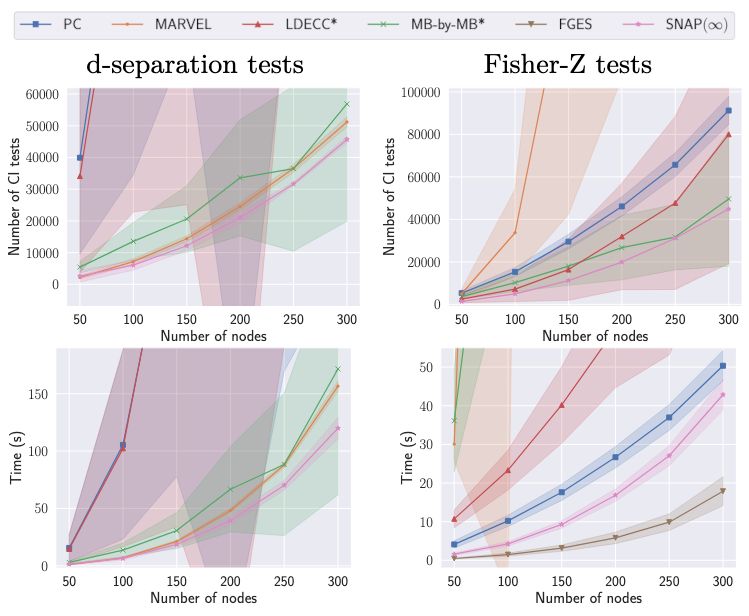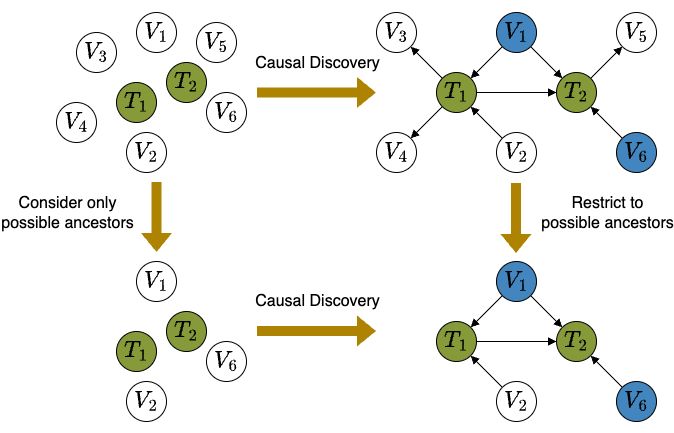
🏎️is more computationally efficient than global methods, performing close to local methods,
💎recovers high-quality, statistically efficient adjustment sets,
🔮thus enables reliable causal effect estimation even at scale
7/8


🏎️is more computationally efficient than global methods, performing close to local methods,
💎recovers high-quality, statistically efficient adjustment sets,
🔮thus enables reliable causal effect estimation even at scale
7/8
➡Learn causal relations between targets
✅Test identifiability of the effect
🐣Find explicit descendants of treatment
🧩Find mediators
🎯Collect optimal adjustment set
For unidentifiable effects, LOAD exits early and returns locally valid adjustments
6/8
➡Learn causal relations between targets
✅Test identifiability of the effect
🐣Find explicit descendants of treatment
🧩Find mediators
🎯Collect optimal adjustment set
For unidentifiable effects, LOAD exits early and returns locally valid adjustments
6/8
5/8

5/8
4/8
4/8
📍 Local discovery methods are fast, but can only find sub-optimal adjustment sets.
Can we get the best of both worlds and find optimal adjustment sets from local information?
3/8

📍 Local discovery methods are fast, but can only find sub-optimal adjustment sets.
Can we get the best of both worlds and find optimal adjustment sets from local information?
3/8
But how to find the optimal adjustment set if the causal graph is not available?
2/8

But how to find the optimal adjustment set if the causal graph is not available?
2/8








